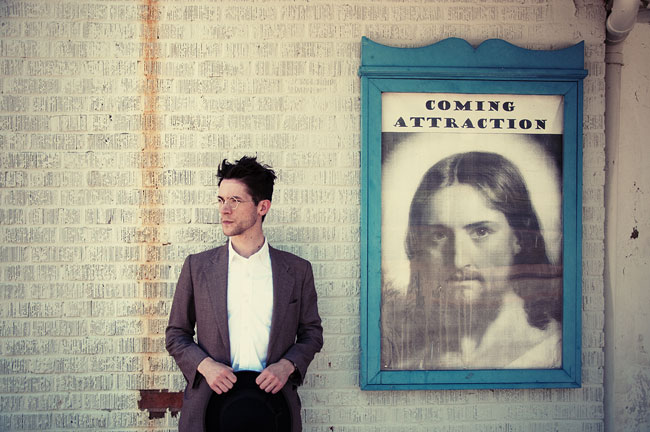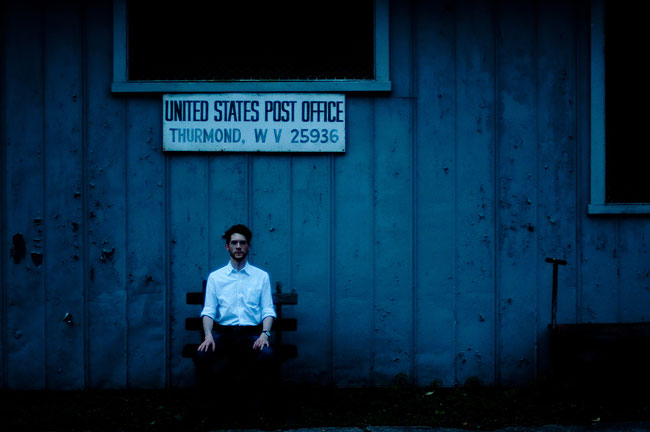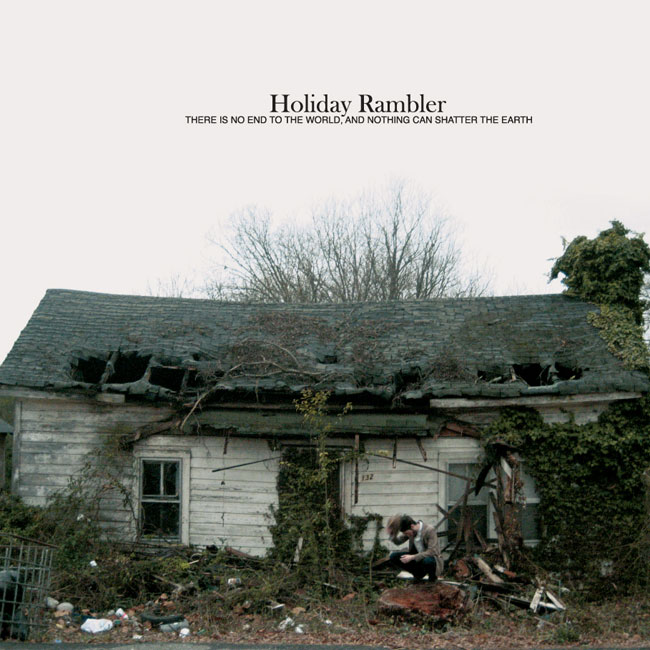A Conversation-Interview between Holiday Rambler and Lendl Barcelos
Holiday Rambler is the everyman that died long ago, the tradition your grandparents remembered, but your parents discarded. Utilizing no more than can be carried alone, he sings forgotten histories over vernacular guitar accompaniment. His debut LP There Is No End To The World, And Nothing Can Shatter The Earth is released on February 14.
Lendl Barcelos enjoys patterns, concepts, sounds, and movement. He lives in Toronto where he pretends that one can be a flâneur (and/or Situationist) outside of Paris (and London). It is said that he is involved with The Passive Collective.
L: Let’s start with the obvious, so the world doesn’t end and the earth doesn’t shatter, yet everything is in disaster?
HR: I do not know if things are in disaster. I believe the appearance of disaster is pervasive, but it always has been. People get wrapped up in the notion of disaster.
L: At the least, things are in decay.
HR: Well of course in decay, but decay is a self-renewing process, not a terminal one. I think it is important that people know that this is the case.
L: That’s really interesting.
HR: Yes. It is not apocalyptic, it is somewhat the opposite. Things will be alright.
L: Well the title is very positive, but the whole album is…
HR: It is not the end of the world and it was not earth-shattering; what could possibly be earth-shattering? It is a leveling of all things.
L: That’s fair. In the songs you or the characters in your songs—since it’s not just you—often refer to loss.
HR: It is just me. There are no characters in my songs. I mean, the songs are all first-person. There is no invention.
L: Though sometimes it’s not you who is speaking.
HR: Very rarely, I would say. That is all I have to go on. There is no other perspective I can realize.
L: Well, “I will do damage to foolish people,” that’s not you.
HR: Well, it is where I come from. It is easy to embody that and to accept it.

L: So it’s you becoming these different things, in a sense?
HR: Especially in that case, that is the voice of my grandfather so it is in acceptance of that and empathizing with that perspective, understanding what it is. It is a feeling felt personally that can be refracted historically in order to utilize it in the present. In one way or another I will do damage to foolish people.
L: I got that sense.
[they laugh]
HR: That is a very violent song. The intentions are extremely threatening. At a recent performance, I warned the audience that they were not being directly addressed. Do you know Michael Gira [of Swans]? He is very threatening. He is often directly threatening. It is an interesting position to take as a performer, especially when you are at their service.
L: But the audience are not the foolish people?
HR: Right. Well they would assume that they are not and in that they are safe.
L: A lot of the songs are located in the US (Centralia, California). They are very American, but you live in Canada?
HR: They are very regional. I do live in Canada. The perspective to be able to sing about those places objectively would not be had if I did not live here. The distance from something allows its observation. Living in that country [the US], I would be further away from accessing those things because they would be too close at hand. My identity as an American was nonexistent until I moved to Canada. It was essentially incidental to me when I was living there, maybe even distasteful to me, but now that I am here, I am understanding what it is about—even in its fractured, foolish, hubristic, disgusting providence. It is a foolish place. It is completely contradictory, incredibly hypocritical, but in the cracks of that foundation (and because of those cracks) the formative climate for things is very specific and particular. In Bill Callahan’s song ‘America!’ there’s a line: “everyone’s allowed a past they don’t care to mention/America! America!”
L: Haha…and you obviously identify with that.
HR: Oh certainly. I do not care to mention the past. I mean, I do not really care to mention anything too directly. It is interesting to try to impress upon people the important aspects of a situation in song without being completely prescriptive. I am not interested in really telling stories as much as establishing scenarios so that one might understand the feeling you get from the story anyhow. There are just more direct ways. The details of a thing are fairly incidental to how the situation unfolds, how it makes you feel, and what it impresses upon you.

L: The songs seem very personal…
HR: They have to be, you cannot start anywhere else.
L: Is there some distance between you and what’s being said in the music?
HR: No no, there is very little distance. There is no distance. It is so close at hand that it necessitates the becoming of a separate entity to sing it. You have to draft yourself into service as an intermediary in order to access those things that are so close to you, otherwise you cannot get them off, cannot brush them off, cannot even remove them from yourself.
L: That makes sense to me.
HR: There is a lot of loss. Someone told me there is a lot of death on the album and I thought that is very strange; it does not seem like that to me.
L: I have an obligatory musician question: When you want to dance, what gets you moving?
HR: African rhythms. Densely repetitive rhythms. That is how the playing is…well that is a stretch…but it is certainly repetitive. Small repetitions.
L: Well you can say that some of those rhythms came from Africa.
HR: I would say you would definitely have to. The Jali, the kora playing cultures, that is certainly a touchstone. It is beautiful endless music upon which any portion of an endless history can be expressed.


You must log in to post a comment.